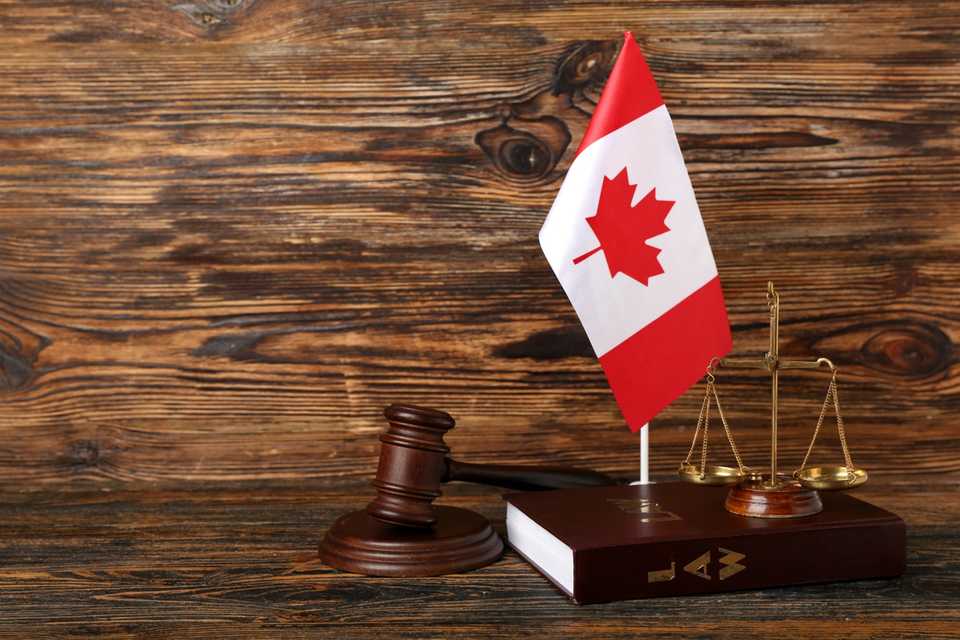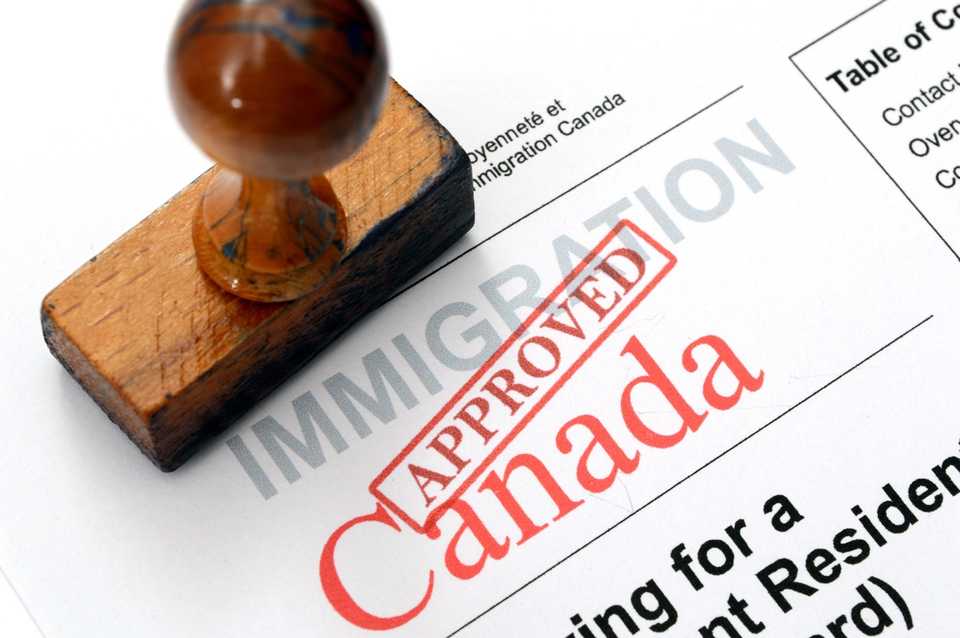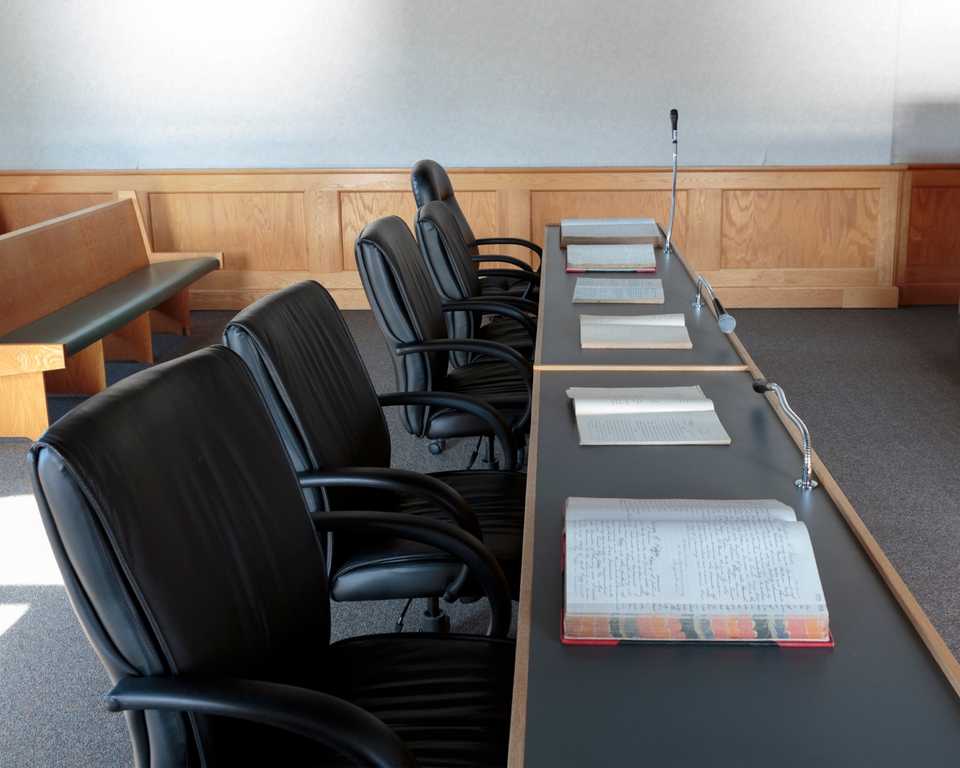Navigating the pathways to Canada, whether for a visa, permanent residency, citizenship, or refugee protection, can be a complex and lengthy journey. Applicants, especially those seeking refugee status, may need to present their case before the Immigration and Refugee Board.
Given the potentially daunting nature of this process, enlisting a lawyer with expertise in immigration law is strongly recommended.

Such a professional can provide invaluable guidance and support, helping to navigate the various legal requirements and enhance the likelihood of a successful outcome before the Immigration and Refugee Board!
In this article, JuriGo explains what the Immigration and Refugee Board of Canada is and how to find a specialized lawyer in this field!
What’s the Immigration and Refugee Board of Canada?
The Immigration and Refugee Board of Canada (IRB) stands as Canada's largest independent administrative tribunal. It plays a crucial role in the immigration system by making well-reasoned decisions on immigration and refugee matters efficiently, fairly, and in strict accordance with the law.
One of its primary responsibilities includes determining which of the thousands of claimants who arrive in Canada annually need refugee protection.
What are the roles and responsibilities of the Immigration and Refugee Board?
The Immigration and Refugee Board of Canada (IRB) is responsible for assessing and deciding who needs refugee protection. This involves a thorough review of each claimant's situation to ensure decisions are fair and meet legal standards. The IRB handles immigration and refugee cases on behalf of Canadians, aiming to resolve them efficiently, fairly, and in accordance with the law.
This mission emphasizes the IRB's dedication to justice and its key role in the immigration system.
The IRB aims to excel in its work by managing cases simply, quickly, and fairly. It continuously seeks innovative ways to improve its processes and maintain its status as a top administrative tribunal.
Through these efforts, the IRB helps shape the future of Canada's immigration system, ensuring it remains fair and effective.
| Immigration, Refugees, and Citizenship Canada (IRCC) vs. Immigration and Refugee Board (IRB)Immigration, Refugees, and Citizenship Canada (IRCC) is the federal department responsible for managing Canada’s immigration and citizenship processes. Its functions include:Selecting immigrants : Assessing and choosing individuals for permanent residency and other immigration pathways.Issuing visas : Granting visitor visas and other temporary resident permits.Granting citizenship : Processing applications for Canadian citizenship.In addition to these administrative roles, the IRCC also evaluates refugee protection claims made within Canada. If a claim meets the necessary criteria, it is referred to the Immigration and Refugee Board (IRB) for a decision.The key difference is that the IRCC performs administrative tasks and processes applications, while the IRB has a judicial role, making decisions based on legal criteria. The IRCC and IRB are entirely independent of each other, ensuring a separation between the administrative processing of applications and the adjudicative decision-making on claims. |
|---|

The Immigration and Refugee Board has four distinct divisions!
There are various reasons why an individual might need to engage with the Immigration and Refugee Board. However, it's important to note that the Board does not handle requests from citizens directly; these are managed by its divisions.
The Immigration and Refugee Board is composed of four distinct sections:
I. Refugee Protection Division (RPD)
II. Refugee Appeal Division (RAD)
III. Immigration Division (ID)
IV. Immigration Appeal Division (IAD)
Each of these four divisions has its own specific objectives and responsibilities:
Refugee Protection Division (RPD)
The Refugee Protection Division (RPD) is an integral part of Canada's Immigration and Refugee Board (IRB). Its primary role is to adjudicate claims for refugee protection made within Canada, ensuring that claimants meet the criteria set by Canadian law and the international Geneva Convention, as implemented through the Immigration and Refugee Protection Act.
| Categories of Refugee Status | Explanation |
|---|---|
| Convention Refugee | A convention refugee is defined as someone who has demonstrated that they cannot return to their home country due to a well-founded fear of persecution. This persecution must be based on one of the following grounds:RaceReligionNationalityPolitical opinionMembership in a particular social group. |
| Person in need of protection | A person in need of protection is someone who has shown that returning to their home country would expose them to severe risks such as danger, torture, a threat to their life, or the risk of cruel and unusual punishment. This category does not cover general risks such as poor economic conditions or inadequate healthcare but focuses on significant personal threats. |
Key responsibilities of the RPD :
- Assessing eligibility
The Refugee Protection Division evaluates whether claims for refugee protection are eligible for consideration. This involves a thorough review of the initial information provided by the claimant, such as personal testimony and any supporting documentation.
The assessment aims to establish whether the claim meets the necessary criteria to proceed to a full hearing. This initial evaluation is crucial in filtering out claims that do not meet the basic requirements for refugee protection under Canadian law.
- Conducting hearings
For claims that are deemed eligible, the RPD schedules formal hearings. During these hearings, claimants have the opportunity to present their case in detail. They must provide compelling evidence and credible testimony to support their claim for refugee protection.

The hearings are conducted in a fair and impartial manner, ensuring that claimants are given a full opportunity to explain their situation and respond to any questions or concerns raised by the adjudicators. The process is designed to be thorough, giving claimants a fair chance to make their case.
- Decision-making
After the hearing, the Refugee Protection Division is responsible for making a decision on whether the claimant qualifies as a convention refugee or a person in need of protection. This decision is based on a detailed assessment of the evidence presented and the claimant's testimony.
The RPD considers whether the claimant has a well-founded fear of persecution or faces a significant risk of danger, torture, or cruel and unusual punishment if returned to their home country. The decisions are made in accordance with the legal standards set forth in the Immigration and Refugee Protection Act and the Geneva Convention.
- Ensuring fairness and efficiency
The Refugee Protection Division (RPD) is committed to resolving cases efficiently while ensuring fairness throughout the process. The division strives to handle each claim in a timely manner without compromising the thoroughness of the review.
Fairness is upheld by ensuring that all claimants are given an equal opportunity to present their case and that decisions are made impartially based on the merits of each individual claim. The RPD also implements measures to streamline processes and reduce unnecessary delays, thereby improving the overall efficiency of the refugee protection system.
Refugee Appeal Division (RAD)
The Refugee Appeal Division (RAD) is a vital part of Canada’s refugee protection framework. Established to offer an additional level of scrutiny, the RAD reviews appeals from decisions made by the Refugee Protection Division (RPD), which is responsible for initially assessing refugee claims.
| Key responsibilities of the RAD | Explanation |
|---|---|
| Error correction: | The Refugee Appeal Division is primary responsibility is to identify and address any errors or inconsistencies in the Refugee Protection Division (RPD) decisions. This ensures that claimants receive a fair assessment and that any mistakes in the initial decision-making process are rectified. |
| Decision Review | The RAD reviews the case based on the documentation provided by the parties involved and the RPD’s record. It does not typically hold hearings but makes decisions based on the submitted information. |
| Decision outcomes | The RAD has the authority to confirm the RPD’s decision, overturn it, or refer the case back to the RPD with specific instructions for further consideration. This process aims to ensure that the claimant's case is thoroughly and fairly evaluated. |

In summary, the RAD is essential for correcting errors and enhancing the fairness of Canada’s refugee protection system, ensuring that refugee claims are assessed with the necessary rigour and accuracy.
Immigration Division (ID)
The Immigration Division (ID) of the Immigration and Refugee Board of Canada is pivotal in overseeing and managing immigration-related decisions. The ID is responsible for conducting admissibility hearings and detention reviews, ensuring that individuals involved in immigration processes are treated fairly and in accordance with the law.
Key responsibilities of the ID :
- Admissibility hearings
ID conducts admissibility hearings to determine whether foreign nationals or permanent residents are admissible to Canada. This process is initiated at the request of the Canada Border Services Agency (CBSA) or Immigration, Refugees, and Citizenship Canada (IRCC).
Admissibility hearings address whether individuals should be allowed to enter or remain in Canada, or if they should be removed due to grounds specified under the Immigration and Refugee Protection Act.
| What is the Canada Border Services Agency (CBSA)?Canada Border Services Agency (CBSA) is responsible for enforcing immigration laws and regulations. This includes activities such as border security, customs enforcement, and the detention and removal of individuals who do not comply with immigration laws. The CBSA also conducts investigations and manages intelligence related to immigration issues. |
|---|
- Decision-making
During these hearings, the ID evaluates evidence provided by both the CBSA and the individual. Decisions made by the ID can result in allowing the individual to stay in Canada or ordering their removal. The hearings are designed to ensure that all relevant information is considered and that decisions are made fairly.
- Detention reviews
The ID conducts detention reviews for individuals detained by the CBSA for immigration-related reasons. The review process is as follows:
- Initial Review: Within 48 hours of the start of detention or without delay.
- Subsequent Review: Within 7 days of the initial review.
- Ongoing Reviews: At least every 30 days thereafter until the individual is either released or removed from Canada.

The ID assesses the justification for continued detention based on several factors :
Danger to the public:
The CBSA may argue that the individual is a danger to the public, providing evidence such as association with criminal organizations or serious criminal convictions. Detainees can present their own evidence to counter these claims.
Flight risk:
The CBSA may suggest that the individual is likely to evade immigration proceedings or removal. Evidence of non-compliance or attempts to evade authorities may be considered.
Unverified identity:
If an individual’s identity is not established, the CBSA must demonstrate efforts to verify it, and the detainee must assist in this process.
Inadmissibility grounds:
The CBSA may present reasons for inadmissibility, such as security concerns or serious criminality. The ID will review whether the CBSA has a reasonable suspicion and is taking necessary investigative steps.
The Immigration Division ensures that decisions related to admissibility and detention are made fairly and in line with the law. By conducting thorough hearings and regular reviews, the ID upholds the integrity of Canada’s immigration system and protects the rights of individuals involved in the process.
Immigration Appeal Division (IAD)
The Immigration Appeal Division (IAD) is a crucial component of the Immigration and Refugee Board, tasked with hearing appeals related to various immigration matters. Its role is to review and ensure the fairness and accuracy of decisions made by immigration authorities. The IAD addresses several types of appeals, each with its own procedural nuances and responsibilities.
| Types of appeals heard by the IAD | Explanation |
|---|---|
| Sponsorship appeals | If a sponsorship application is rejected, the citizen or permanent resident who applied to sponsor the foreign national can appeal the decision to the IAD.The IAD hears appeals concerning family class sponsorship applications that have been refused by IRCC. |
| Removal order appeals | The IAD also hears appeals from individuals who have received a removal order, including permanent residents, protected persons, and those holding permanent resident visas. If the appeal proceeds to a hearing, the IAD will decide whether to cancel the removal order or stay it under specified conditions. If the appeal is dismissed, the removal order will be enforced, and the individual must leave Canada. |
| Residency obligation appeals | Permanent residents must be physically present in Canada for at least 730 days within any five-year period to maintain their status. If an individual fails to meet this requirement, their permanent resident status may be challenged.Appeals against such decisions can be filed with the Immigration Appeal Division (IAD). The IAD can schedule a hearing to review the case. Possible outcomes of these hearings include either maintaining the individual's permanent resident status or revoking it, which may result in the issuance of a departure order. |

In summary, the IAD provides a critical review mechanism for immigration decisions, offering a structured process to address appeals and ensure that decisions are just and accurate.
What are the responsibilities of Immigration and Refugee Board Lawyers?
Immigration and refugee lawyers play a crucial role in representing individuals before Canadian authorities and courts. They handle complex issues such as refusals, deportations, and removal orders. These lawyers are adept at preparing and filing appeals, ensuring compliance with strict deadlines and filing requirements.
They provide personalized advice, represent clients during hearings, and work to achieve the best possible outcomes for their cases across the four sections of the Immigration and Refugee Board:
Refugee Protection Division (RPD)
Lawyers assist clients in presenting their claims for refugee protection. Their responsibilities include:
- Helping clients prepare their narratives
- Gathering supporting documentation
- Representing clients during hearings
These lawyers ensure that the clients' stories are effectively communicated and that all relevant evidence is presented to support their claims.
Refugee Appeal Division (RAD)
For refugee claimants, lawyers handle appeals by filing notices of appeal and preparing detailed records. Their efforts can lead to overturned decisions and new hearings, providing crucial protection for refugees. Their responsibilities include:
- Meticulously compiling evidence
- Drafting comprehensive legal arguments
- Presenting cases that highlight their clients' need for protection
Immigration Division (ID)
Lawyers represent clients in matters before the Immigration Division, including detention reviews and admissibility hearings. They argue for the release of detained individuals, challenge grounds of inadmissibility, and present evidence to support their clients' cases. Their responsibilities include:
- Ensuring clients' rights are protected throughout the process
- Working towards favourable resolutions
- Representing clients during hearings and preparing them for proceedings
Immigration Appeal Division (IAD)
Lawyers manage appeals related to permanent residency revocations, family sponsorship refusals, and residency requirement failures. Their responsibilities include:
- Gathering and presenting evidence
- Preparing clients and witnesses for hearings
- Providing compelling arguments to overturn negative decisions

These lawyers ensure that all procedural requirements are met and advocate vigorously on behalf of their clients to challenge unjust decisions.
By offering expert legal support, these lawyers navigate the complexities of immigration law, ensuring that their clients' rights are upheld, and their cases are presented effectively to secure favourable outcomes.
How to Find an Immigration and Refugee Board Lawyer?
Locating a skilled lawyer to handle Immigration and Refugee Board (IRB) matters is essential due to the complexities of immigration law and the profound impact IRB decisions can have on the lives and security of individuals. Here are some steps to find an immigration and refugee board lawyer :
- Research online: Use online legal directories and search engines to find immigration and refugee lawyers near your location.
- Read reviews and testimonials: Look for reviews and testimonials from former clients to gauge a lawyer's reputation and effectiveness. This can provide insights into their success rate and client satisfaction.
- Consultations: Schedule consultations with a few lawyers to discuss your case. Use this opportunity to ask about their experience with cases similar to yours, their approach to handling your case, and their fee structure.
- Referrals: Seek referrals from friends, family, or community organizations. Personal recommendations can lead to trusted lawyers who have successfully handled similar cases.
In summary, finding the right immigration and refugee board lawyer involves thorough research, checking credentials, reading reviews, and scheduling consultations. These steps will help ensure you receive expert legal support to navigate the complexities of immigration law and secure favourable outcomes.

JuriGo helps you find an Immigration and Refugee lawyer near you!
JuriGo is an invaluable resource for connecting individuals with experienced immigration and refugee lawyers, offering an effective solution for finding the right legal representation, regardless of your location.
JuriGo provides a simple, fast, and free way to find an immigration and refugee board lawyer! Simply fill out our request form and share the details of your situation.
Once we receive your request, we will promptly connect you with a lawyer near you. There is no obligation on your part!